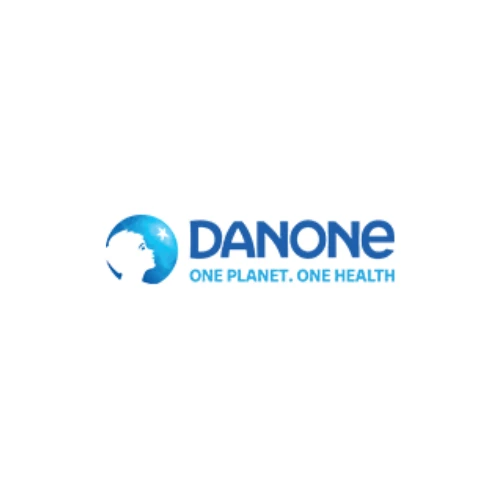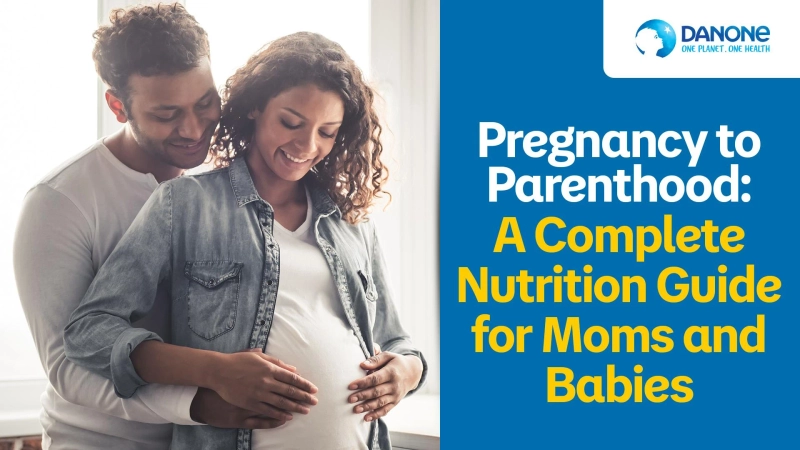From the time you learn that you’re pregnant to when you first feed your baby a spoonful of baby cereal, nutrition is key to supporting you and your baby. Your diet not only nourishes your own body, but it also helps establish your child's lifelong health.
This comprehensive guide reviews the best food for pregnancy, nutrition for pregnant women, diet for nursing mother, and the formula closest to breastmilk, so you are prepared for every phase of pregnancy and postpartum.
Importance of Nutrition: From Womb to Weaning
Adequate nutrition contributes to:
- Fetal brain and organ development
- Healthy maternal weight gain
- Lower risk of complications in pregnancy, such as anemia, gestational diabetes, and premature birth
- Breastmilk quality and quantity
- Baby’s immunity and growth during the first 1,000 days
UNICEF tells us that the first 1,000 days (from conception to age 2) are a critical time in establishing a baseline for a child’s health and that maternal and infant health should be a priority for the country.
Nutrition for Pregnant Women
During your pregnancy, you need more protein, iron, calcium, folic acid, and omega-3 fatty acids. A well-balanced diet is essential for your nutrition based on your trimester, so that you and your growing infant can be well nourished.
Important Nutrients and Where to Find Them(In Terms of Foods)
Folic Acid- Prevents neural tube defects.
Sources: Green leafy vegetables, citrus fruits, lentils, and fortified cereals.
Iron- Aids in transporting oxygen and prevents anemia.
Sources: Moong dal, beetroot, lean meat, and iron-fortified foods.
Calcium- Responsible for developing strong bones and teeth.
Sources: Milk, curd, ragi, and sesame seeds.
Omega-3 fatty acids(DHA)- Supporting brain development and healthy eyes.
Sources: Fatty fish( low mercury levels), flaxseeds and walnuts.
Protein- A nutrient necessary for tissue development.
Sources: Eggs, paneer, pulses, chicken, and tofu.
Suggested Menu for Pregnancy
- Breakfast- Ragi porridge and banana
- Lunch- Moong dal, brown rice, and spinach sabzi
- Dinner- Paneer curry, chapatti, and cucumber salad
- Snacks- Handful of walnuts, roasted chana, or fruit.
Best Food for Pregnancy: Trimester Tips
First Trimester
- Eat small, frequent meals to manage nausea
- Focus on folate-rich foods
- Stay hydrated with coconut water and clear fluids
Second Trimester
- Add 300 kcal/day
- Increase iron and calcium intake
- Include omega-3-rich foods
Third Trimester
- Add 450 kcal/day
- Emphasize protein, vitamin C, zinc, and fiber
- Eat smaller, nutrient-dense meals to reduce acidity
Diet for Nursing Mother
During the lactation period, your body requires additional calories, hydration, and nutrients. Breastfeeding may increase your caloric requirement by about 500 kcal/day to support both you and your baby.

Good Food Choices to Support Lactation and Recovery
Sources of Protein: Eggs, dals, dairy, and lean meats
Hydration: Water, soups, jeera water, and buttermilk
Galactagogues: Fenugreek seeds, oats, fennel, and garlic
Iron and Calcium: If recommended, continue taking your supplements.
Formula Contains the Closest Composition to Breast Milk
Although breast milk is the preferred way to feed your baby, there may be circumstances when formula is required. When looking for a formula, choose one that is designed to have a composition close to breast milk.
Look For The Following in Baby Formula:
DHA & ARA - For brain and eye development
Iron Fortified - Reduces risk of anemia
Prebiotics & Probiotics - For digestion and immunity
Whey: Casein Ratio Similar to Breast Milk - Easier to digest
Danone's infant nutrition range has been developed to replicate these important nutrients found in breast milk while also following the international guidelines for safety and growth.
Beginning Solids: 6 Months and Onwards
Around six months of age, your baby's nutritional needs will exceed those met by breastmilk alone, particularly in iron and energy.
First Foods to Introduce:
Iron-Fortified Baby Cereal - Soft and easy to digest
Mashed Sweet Potatoes - High in beta-carotene
Moong Dal Khichdi - Easily digestible and protein-rich
Fruit Purees - Apple, banana, pear to provide vitamins and fiber
Ways to Maximize Baby's Nutrition:
Pair iron-rich foods with something containing vitamin C (e.g., spinach + tomato)
Cow's milk should not be introduced until age 1 (could interfere with iron absorption)
Do not add salt, sugar, or honey before the 12 month mark
Continue breastfeeding or formula until age 2 or beyond
Whether you're expecting or holding your baby in your arms, your nutrition choices today shape a healthier tomorrow. Prioritize quality foods and the best food for pregnancy, understand your body's changing needs, and support your baby with every bite.
FAQs
Q1: Can I take iron supplements while breastfeeding?
Yes, especially if you were low in iron during pregnancy. Check with your doctor.
Q2: What safest formula is closest to breastmilk?
A formula with DHA, iron, and prebiotics. Most of Danone’s infant formulas meet global safety and nutrition standards.
Q3: How many times should I feed solids to my baby who is 6 months old?
Start with once a day and increase to 2-3 times by 8-9 months.
Q4: Is ragi safe in pregnancy and to feed the baby?
Yes, ragi (finger millet) is rich in iron and calcium and is safe for pregnant women and is an excellent first solid for babies.
Q5: What foods should I avoid while breastfeeding?
Caffeine, spicy foods (if your baby reacts), and allergens you have been advised to avoid by your doctor.


